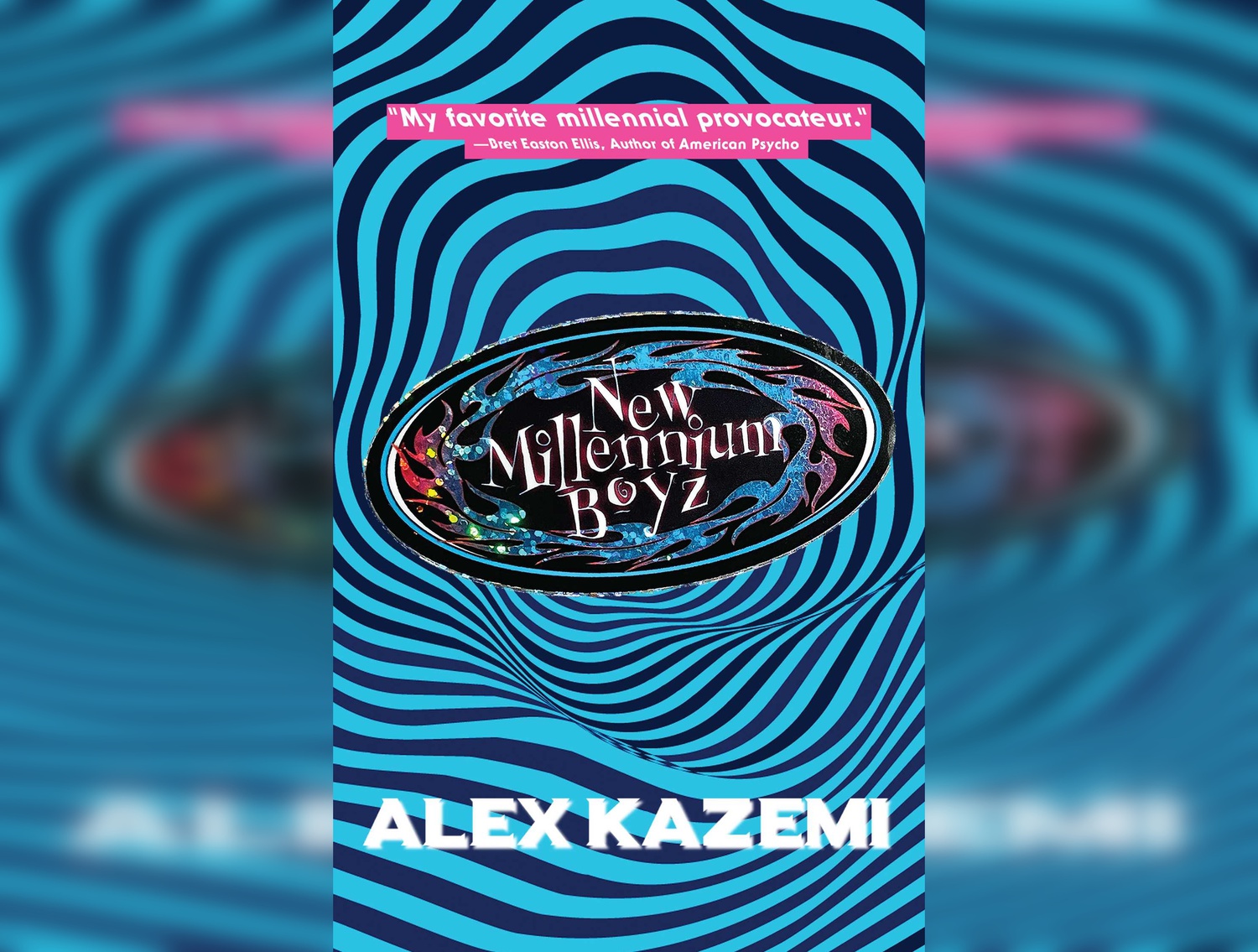
News
News Flash: Memory Shop and Anime Zakka to Open in Harvard Square

News
Harvard Researchers Develop AI-Driven Framework To Study Social Interactions, A Step Forward for Autism Research

News
Harvard Innovation Labs Announces 25 President’s Innovation Challenge Finalists

News
Graduate Student Council To Vote on Meeting Attendance Policy

News
Pop Hits and Politics: At Yardfest, Students Dance to Bedingfield and a Student Band Condemns Trump
‘New Millennium Boyz’ Review: A Study in Shock Value
3 Stars

This article contains mentions of violence that may be troubling for some readers.
Since the dawn of the digital age, American teenagers have been lured into the online world’s darkest corners. In his debut novel, “New Millenium Boyz,” Canadian author Alex Kazemi explores how and why this dark journey begins. The novel follows Brad Sela, a stereotypical suburban American high schooler at the turn of the 21st century. As Brad becomes entangled in a new network of friends, he finds that the line between ordinary and extremist behavior is thinner than he ever imagined. In a style reminiscent of authors such as Bret Easton Ellis and Chuck Palahniuk, “New Millenium Boyz” is ultimately built upon the idea that shock value can convey a point. However, by reveling in explicitness, the novel also risks glorifying the exact extremism that it sets out to criticize.
“New Millenium Boyz” is unapologetically blunt and violent. The boys that Brad begins to surround himself with casually say things such as “tupperware and animal mutilation are my aesthetic.” These teens, who are finishing high school in the late ’90s and early ’00s, have grown up in the shadow of school shootings and the era of extremist internet chat rooms. Brad’s friends are convinced that embracing violence will bring them fame; one friend boasts, “I’m becoming a prophet, an icon, and I don’t even have to move to Hollywood.” Their dark dreams are written out in full detail, showing readers how sinister aspirations can develop among teenagers on the wrong path.
Brad will do anything for his friends’ approval, but by doing so, he begins to partake in violence, desensitization, and misogyny. By depicting these events explicitly, Kazemi utilizes shock value to his advantage and compels readers to feel concerned for the young boys that they may know.
Yet by using shock value at every turn, Kazemi also walks a thin line. Depicting violence in fiction does not necessarily generate more violence in real life, but books such as Bret Easton Ellis’s “American Psycho” have landed in hot water for portraying murder and hatred to make a point. “New Millennium Boyz” does not idealize the world that Brad lands himself in, but it interlaces the setting’s dark aspects with more general nostalgic references. Sometimes this causes the book’s points to drown in its own nostalgia. Every page is swamped with pop culture references, from brand names such as PopTarts, Gameboys, and MTV to celebrities like Madonna, Kurt Cobain, and Marilyn Manson. While these references may trigger waves of memory for those who grew up in the ’90s, they also distract from Kazemi’s social critique. The book does not glamorize these relics of the ’90s — in fact, it makes a point to show their dark sides — but its overreliance on them lend the novel’s violence a positive glow. In order to curb this effect, the novel would benefit from less referential material and a tighter focus on the ills of the late ’90s instead.
Ultimately, Kazemi uses shock value to make a poignant point: The glamorization of and desensitization to violence creates a dangerous cycle. Yet there arises an eerie sense that the novel’s decadent descriptions may tempt just as many people as it warns. “New Millennium Boyz” focuses on effect of violence during the turn of the century, but its warning remains relevant in the modern day. Although the novel is clearly written with the goal of alerting readers to the existence of a dark world unknown to them, it might tempt some readers to follow in Brad’s footsteps by highlighting the rushes of power he feels alongside violence. Still, “New Millennium Boyz” is crass, loud, and important in the ways that count, and it is sure to make its points to those who care to truly listen.
—Staff writer Hannah E. Gadway can be reached at hannah.gadway@thecrimson.com.
Want to keep up with breaking news? Subscribe to our email newsletter.
From Our Advertisers

Over 300+ courses at prestigious colleges and universities in the US and UK are at your disposal.

Where you should have gotten your protein since 1998.

Serve as a proctor for Harvard Summer School (HSS) students, either in the Secondary School Program (SSP), General Program (GP), or Pre-College Program.

With an increasingly competitive Law School admissions process, it's important to understand what makes an applicant stand out.

Welcome to your one-stop gifting destination for men and women—it's like your neighborhood holiday shop, but way cooler.

HUSL seeks to create and empower a community of students who are seeking pathways into the Sports Business Industry.
